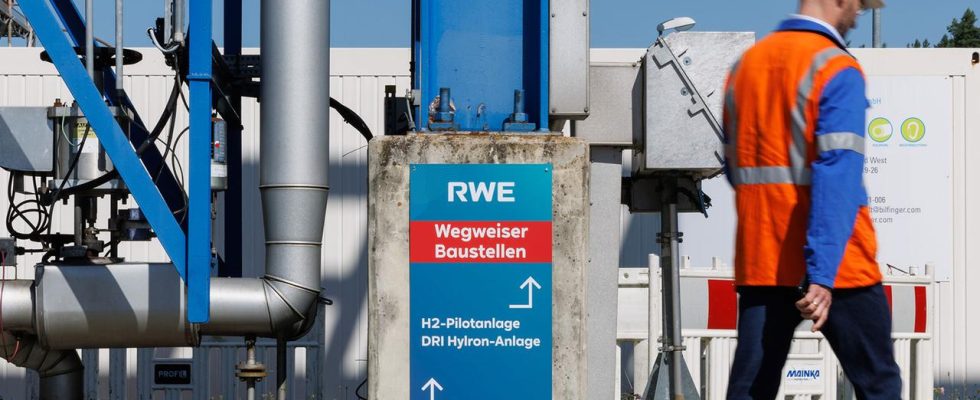The energy company RWE is only willing to invest in green hydrogen with government subsidies. Just a few days ago, the cabinet set new goals for the national hydrogen strategy.
According to a media report, RWE only considers investments in green hydrogen technology to be justifiable if the government provides subsidies for them. At the moment, the energy company cannot initiate any climate-friendly hydrogen projects without state aid, “because we will not approve any projects that do not pay off,” said Sopna Sury, the board member responsible for the hydrogen business, of the “Süddeutsche Zeitung” (“SZ”).
It just doesn’t work without subsidies, it’s like in the early years of wind and solar power, says Sury, Chief Operating Officer Hydrogen at the subsidiary RWE Generation: “It took us ten or 15 years to bring the costs down to a competitive level press, so that no more subsidies are needed. We’ve only been involved with green hydrogen for two and a half years.” For the current financial year, RWE expects adjusted net earnings of between 3.3 and 3.8 billion euros.
The national hydrogen strategy becomes more ambitious
So-called green hydrogen produced in a climate-friendly manner is to replace natural gas, coal and oil in chemical factories or steelworks, power plants or ship propulsion systems in the future. The federal government published an updated and more ambitious national hydrogen strategy three weeks ago. According to this, the production capacity of green hydrogen in Germany should increase to ten gigawatts by 2030.
Work is also to be carried out on setting up the necessary infrastructure. According to the federal government, a starting network with more than 1,800 kilometers of converted and newly built hydrogen lines is to be created by 2027/28, with around 4,500 kilometers to be added across Europe.
According to Sury, RWE wants to operate electrolysers with a total capacity of two gigawatts in Germany, the Netherlands and Great Britain by 2030. “So we are aiming for a substantial market share,” said the manager of the “SZ”.
Is hydrogen too expensive?
However, skeptics fear that green hydrogen could be too expensive in Germany, causing industrial sectors to migrate to countries where the energy source is cheaper. Tobias Fleiter, Head of the Business Unit Demand Analysis and Projection at the Fraunhofer Institute, states that the production of green hydrogen is more cost-efficient at locations with high potential for wind and solar energy. “Our model sees the largest capacities for the production of green hydrogen in France, Spain, the United Kingdom and Norway.”
However, politicians must weigh up the extent to which Germany, for example, would like to make itself dependent on other European countries, according to the expert. “If there are also expectations that the expansion of renewables in many countries will not progress as quickly as calculated, Germany should of course still try to produce its own green hydrogen,” adds Fleiter. System resilience is also an important keyword and should not be neglected become.
Sury expects that the costs will fall far enough in Germany as well: in the long term, the expansion of renewable energies will push down the electricity costs for electrolysers, while the production costs for these systems will fall at the same time. But the producers of the electrolysers would only invest if there were enough orders, said Sury. “That’s why funding for hydrogen projects is so important.”
billions in subsidies for the chip industry
In the past few months, the federal government had already provided other sectors with high subsidies. Most recently, the foreign chip industry had also benefited from government aid worth billions. With state support, Dresden is getting a large semiconductor factory to supply the automotive sector and other industrial sectors with modern chips. The first European factory of the Taiwanese chip manufacturer TSMC is to be built together with the German companies Bosch and Infineon as well as NXP from the Netherlands.
In June, the US chip company Intel announced the opening of a plant in Magdeburg. The federal government is funding this factory with ten billion euros.

